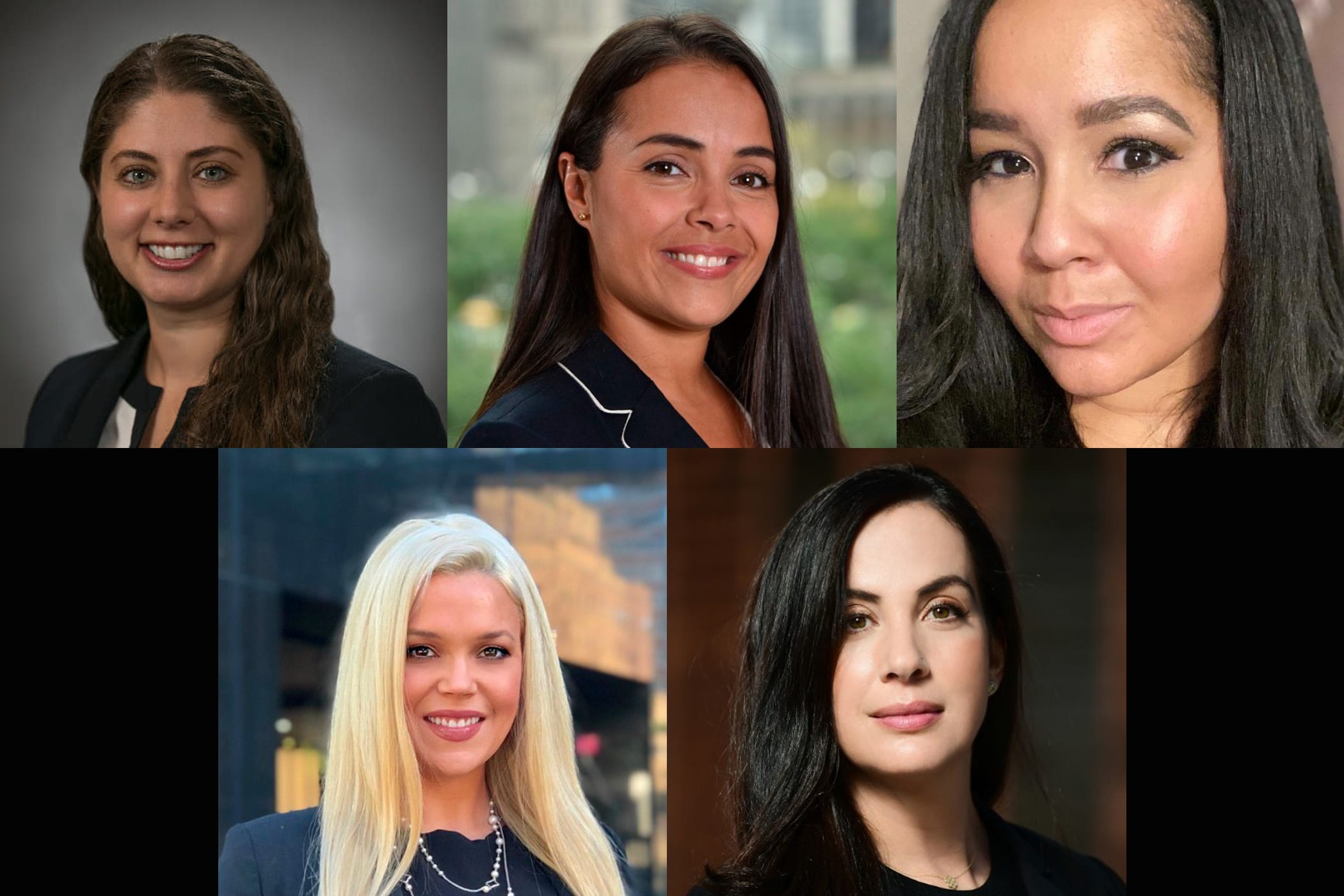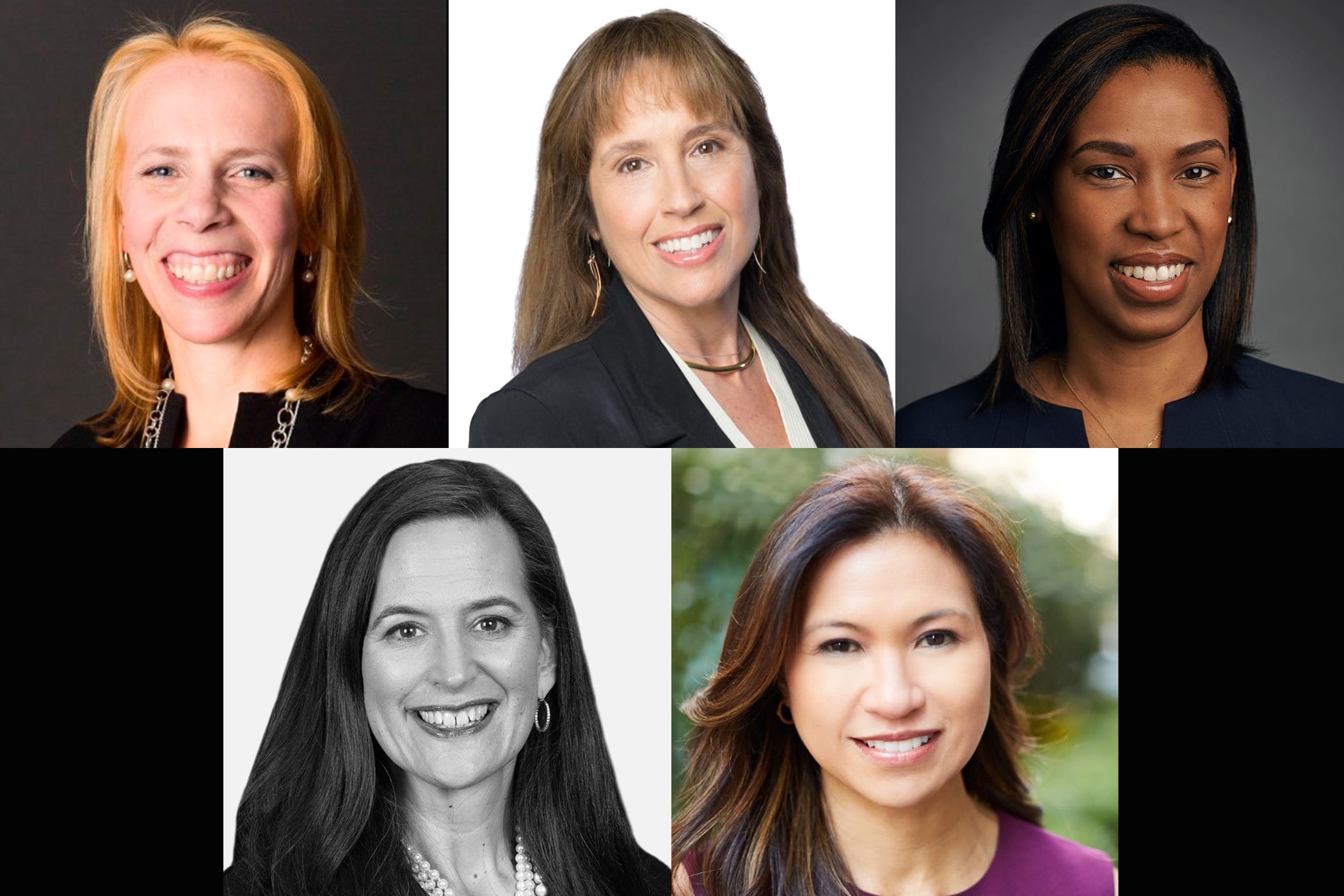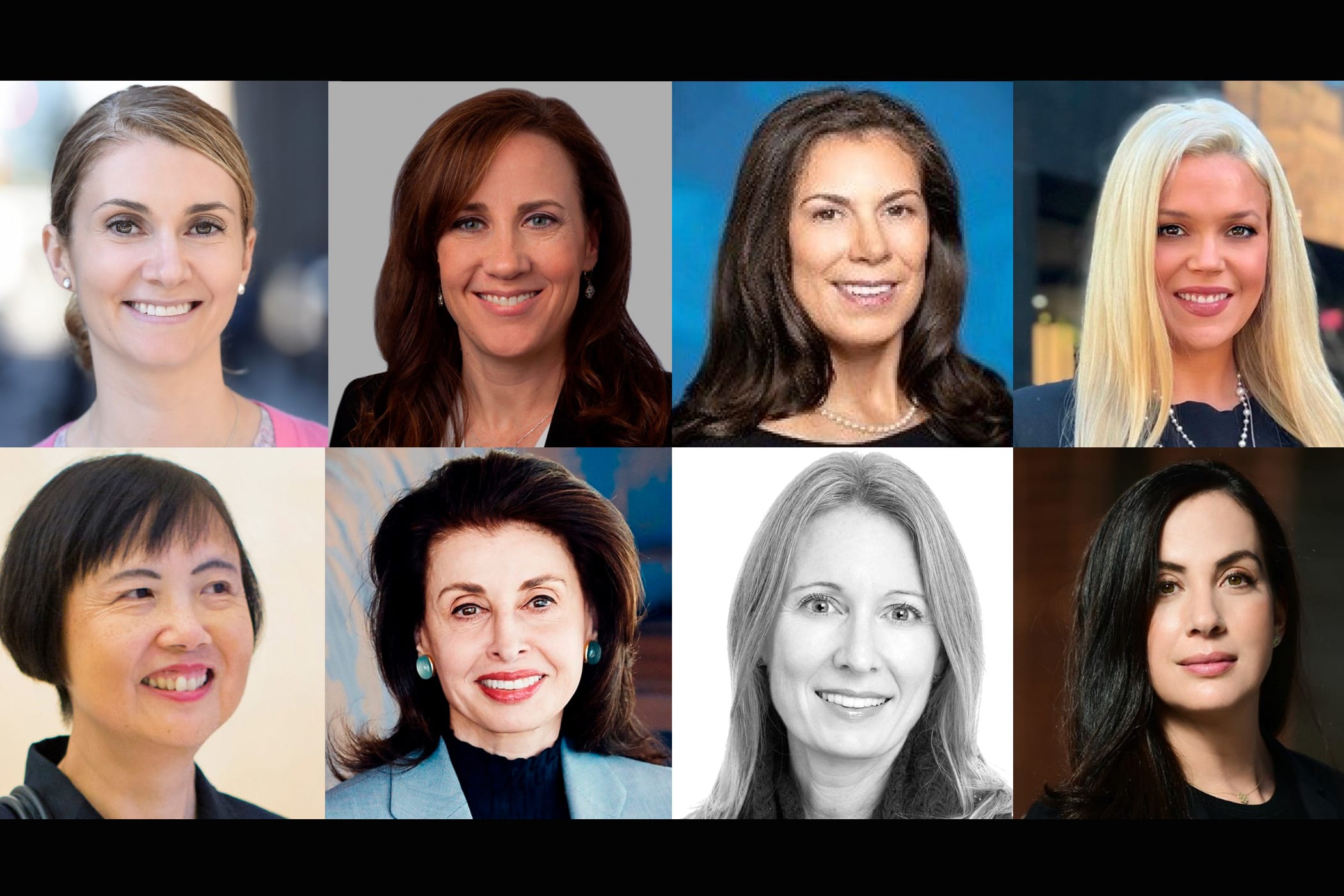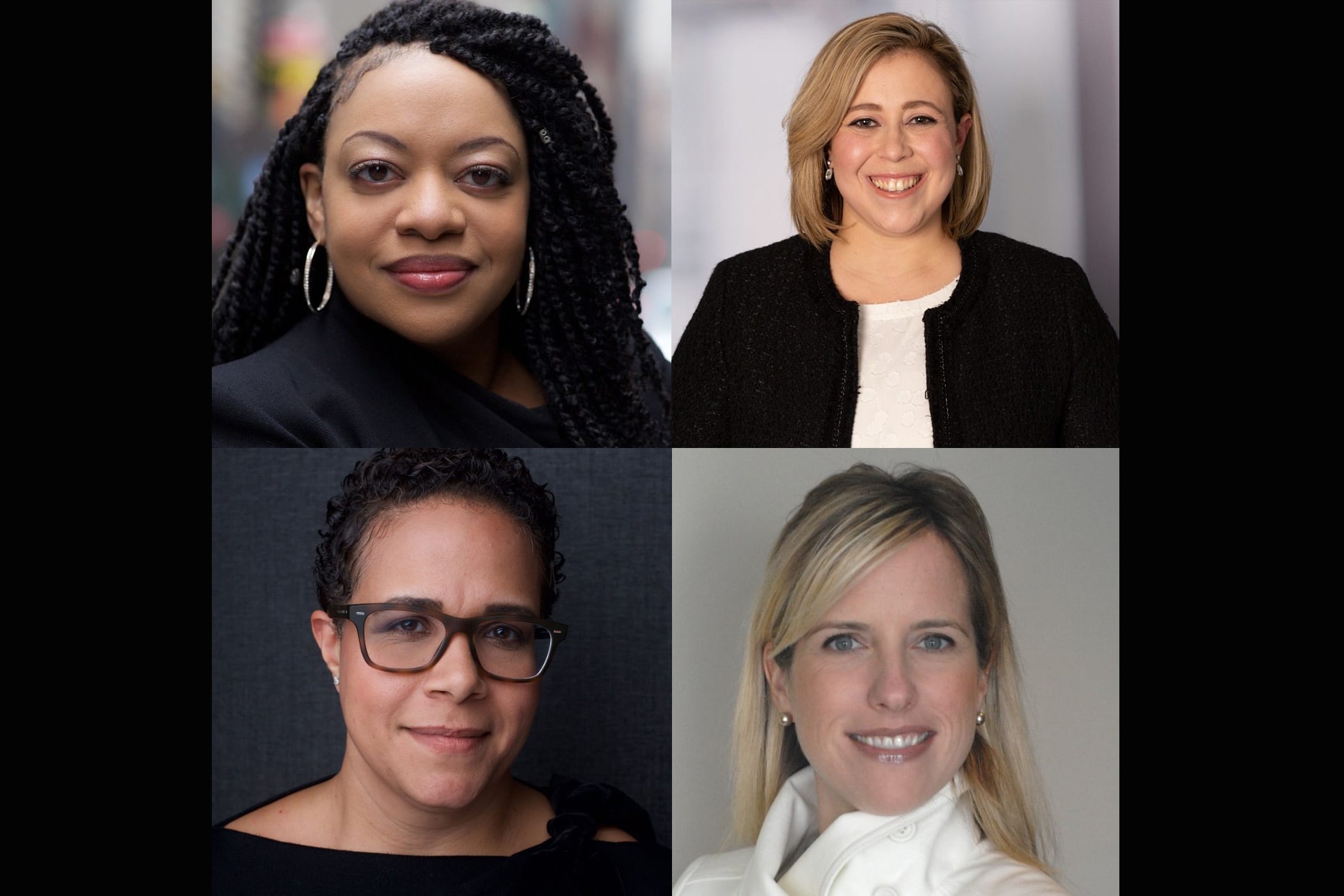Top Female CRE Pros on the Future of Women in the Industry
By Anna Staropoli June 23, 2021 10:02 am
reprints
The future of the office is female … but not without a few changes first.
At the latest Commercial Forum on June 17 — “Innovations Powered By Women: Celebrating the Women Rebuilding Our National Workforce” — women across the industry discussed the importance of mentorship, self and peer advocacy, and the ever-pressing struggle for balance as they gear up to return to the office.
In the past year, women have left the workforce at an alarmingly disproportionate rate. “As we all know, the COVID-19 recession has been referred to as a shecession,” said Belinda Schwartz, partner and chair of the real estate department at Herrick, Feinstein LLP. Schwartz moderated the forum’s opening panel, “Analyzing the Numbers: Programs Fueling Net Job Gains to Restore a Pre-pandemic Workforce.”

Rebecca Rockey, global head of economic analysis and forecasting at Cushman & Wakefield, backed up Schwartz’ claim with statistics. The pandemic unemployment rate peaked at 12.8 percent in April 2020, but “at that time, it actually peaked about 200 basis points higher for women, and about 400 basis points higher for women who were heads of their household,” Rockey said.
Those statistics became even more stark when accounting for unemployment surges amongst mothers; that unemployment rate currently sits 3.5 percent lower than it did prior to COVID. Heightened responsibilities brought on by the pandemic explain this drop-off, as mothers work an average of three hours a day on household jobs. When considered over the course of a week, women in the workforce bear the burden of more than 15 hours of additional labor on top of their actual paying jobs.
“It’s no wonder why we saw more women drop out of the labor force over the last year,” said Carly Tripp, global chief investment officer and head of investment at Nuveen Real Estate.
These rates are partially attributed to the specific industries hit the heaviest by the pandemic, many of which were female-driven. Spheres like private and public education, as well as tourism, have been greatly affected by the past year; and the panelists were optimistic that once those industries get back on their feet, there will be a pent-up demand for women workers.
But, not every problem inhibiting working women was prompted by the pandemic. Though exacerbated by work-from-home, the difficulty to balance a career and motherhood has been a long-term issue plaguing all industries, and the past year has peeled back the curtain to expose the need for reform. The difficulties of working as a mother have contributed to a number of problems within the industry, not only for the women themselves, but for companies unable to retain women employees past lower-level positions.

The real estate industry has seen more women come through at the lower ranks, only to taper off at the middle and upper layers, panelists said. This pattern comes down to women taking time off to parent, but is also due to a combination of factors, like sponsorship issues and the intricacies of day-to-day office discomfort. As such, Tripp posited that even minor gestures of promoting inclusivity, like extending happy hour invitations to female colleagues, could make a huge difference in making women want to stay.
The next panel switched gears to highlight the women in these upper-level positions, celebrating the successes of the panelists in their respective roles. “The Movers & Shakers Defining Real Estate Design & Development Ingenuity” discussion was moderated by Darya Shneyder, a partner at Marks Paneth, and featured Rosemary Bates, director of design and construction at Rockefeller Group; Aisha Hill, vice president of development at Combined Properties; Caleigh Raymer, operations director and vice president at Lendlease; and Colleen Wenke, president and chief operating officer at Taconic Partners.

At the core of this conversation was the need for resilience, buffered by flexibility and creativity; each of the panelists carried out projects the best that they could over the last year, despite the stress and limitations of the pandemic. Adapting to the environment — its timeline, resources and uncontrollables — as well as making quick decisions equipped these women for success.
“If you can act quickly, the impact can be lessened,” Hill said, referencing her ability to bounce back after a fire in February 2020 destroyed her progress on a Fairfax County building project. Rather than wait around — and let the pandemic stall her even further — Hill adjusted almost immediately and is now approaching the point of construction that the project had reached before the fire hit.
As for the industry’s ever-pressing question — What is the future of offices? — the panelists returned to a popular pandemic lesson of empathy, remarking on the need to revive the office space with a human-centric model.
“The human behavior of how we use space changed,” Wenke said, predicting a redesign of offices with the user perspective in mind. Considering human factors, in addition to the standard questions related to supply and construction, is the future of building, she said.
The next conversation, “Investment & Lending Trends: Meet the Women Setting Major Deal Terms”, expanded upon the need for women to stay ahead of the game by taking the initiative to carve out spaces for themselves.
“The competition is fierce, so we’re hustling,” said Nailah Flake-Brown, managing director of real estate at Brookfield Asset Management. “We’re as busy as we’ve ever been.”
Terri Adler, managing partner and real estate chair at Duval & Stachenfeld, moderated the discussion. The other panelists were Lisa M. Fischman, managing director at Greystone; Sara Queen, managing director and head of real estate equity at MetLife; and Karen L. Ramos, managing director of loan syndications at Crédit Agricole CIB. They, along with Flake-Brown, stressed the importance of remaining competitive by staying active and alert, constantly pushing the envelope, and making opportunities for oneself.

In addition to furthering their own careers, these women have also advocated for up-and-coming employees. By mentoring younger women, the panelists have exemplified that it is possible to do it all, so long as they’re open and honest.
“I try to be a good role model,” Ramos said. “Even as a working mom, you can take a leadership role in a major organization in your industry.”
Representing working women is important, as is representation across the board. The positive side to the pandemic’s disproportionate effects on women, as well as people of color, is the dialogue now opened across the industry.
“The people in our industry do not look like the people who use our products,” Queen said. This discord has created an urgency for change, and the panelists looked toward creating products suitable to the real, diverse demographic in the marketplace.
Branching off this need for representation and mentorship, panelists in the fourth conversation — “Profiling Pioneering Women in Design & Construction” — identified passion and self-advocacy as necessities for women just starting out in the business to make a name for themselves. Before women can take matters into their own hands, however, they must find those sponsors and nudge their way into the industry.
“Women in our industry tend to report being over-mentored and under-sponsored,” said Christina Fish, senior director at Cushman & Wakefield, citing data from Deloitte. She led the discussion with Margarita Castro Pereira, a project executive at Gilbane Building Company; Mildred Claire, vice president of risk management at AECOM Tishman; Denise DeSisto, vice president and project executive at Clune Construction; and Jenny Freeman, senior vice president and director of health care at Hunter Roberts Construction Group.

This lack of sponsorship contributes to women comprising only 9 percent of workers in construction and associated industries. Sponsoring women as well as mentoring them, and helping them identify and nurture their passions, would elevate lower-level employees to those harder-to-reach, middle- and higher-tier positions. However, this advocacy has been difficult to put into practice, panelists said. That’s because of unconscious biases, and the pressure to compete and compare.
The competitive nature of the construction industry has yielded a strange dichotomy, where women must fight for a leg up over their counterparts, while simultaneously leaving room for other women to grow alongside them. There is an increasing need for both men and women to step aside to share the spotlight.
“Women tend to really limit the development and growth of other women,” said Freeman, pointing to a lack of education and awareness that these implicit biases even exist. “And that’s something I’m very aware of and I’m focused on at this stage of my career.”
The final panel — “Workplace Evolution: How Office Innovation Is Enabling Women to Return to Work” — featured Linda Foggie, senior vice president and head of the East USA and Americas head of corporate occupier at Turner & Townsend; Rebecca Humphrey, executive vice president and workplace practice group leader at Savills North America; Alexandra Liz, director of global real estate design and workplace at Lazard; and Jennifer Stewart, global head of real estate and managing director at BNY Mellon.
In conversation with CO’s Editor-in-Chief Max Gross, these panelists echoed earlier predictions for improved office amenities that spur balance.
“I think amenities are one of the key drivers we’re seeing now in terms of every conversation we have with clients,” Humphrey said.
As offices prepare to welcome back employees, the manner in which these spaces are run, and the tools they offer, must account for the lessons learned during the pandemic, panelists said. Whether in-office or in proximity to the building, amenities like day care facilities, counseling access, and wellness centers are anticipated for future offices. This combination of improvements is a step toward guaranteeing that workers, especially women, will want to return to work in the first place.
The conversation concluded by addressing another matter of balance, touching upon the generational spectrum within any given office. Making employees of all ages comfortable with one another will enable mutual learning and communal growth. Up to five generations are present within a company, and while this may lead to differences in priorities, it also presents an exciting opportunity for collaboration, panelists said. The offset in generational goals may not be so stark, after all.
“A lot of the needs and wants are the same,” noted Foggie, and different generations are suited to different, but complementary, priorities. Generation Z, for example, is most fixated on matters of inclusivity and activism, and as offices shift to accommodate greater accessibility, this generation can keep them accountable.

To create room for these changes, the proper physical space for the dialogue surrounding them is necessary.
“I think that when we are looking at space, we’re looking more at how do we make sure that all these generations are getting together in a room and having those conversations?” Liz said, noting that something as simple as a shared conference room can open the door for dialogue. The connection between physical office space and cross-generational conversations emphasizes the importance of returning to an in-person structure, Liz added.
When in-office work resumes, this anticipated conversational fluidity has the potential to foster confidence in younger female employees to speak up.
“Any time I’m in the mentor seat, I say to the mentee: ‘What can you share with me as well?'” Stewart said.
The forum also included an awards ceremony, acknowledging the women already working toward the aforementioned changes in the industry — and, in a pandemic, no less.
Categories and winners included Excellence in Legal awarded to Pamela Kain, deputy general counsel of global operations for Cushman & Wakefield; Excellence in Finance & Investments awarded to Kara McShane, head of commercial real estate at Wells Fargo; Excellence in Architecture awarded to Yvonne Szeto, partner at Pei Cobb Freed & Partners Architects; Excellence in Leasing & Sales awarded to Cynthia Wasserberger, vice chairman at JLL; and the inaugural Workplace Innovation prize awarded to Lisa Bevacqua, executive vice president and director of asset management at Silverstein Properties.
Mary Ann Tighe, CEO of CBRE’s tri-state region, won the Lifetime Achievement Award.
Two of the awards — the Breakthrough Award and Excellence in Development & Construction — recognized panel speakers Caleigh Raymer and Colleen Wenke, respectively.



